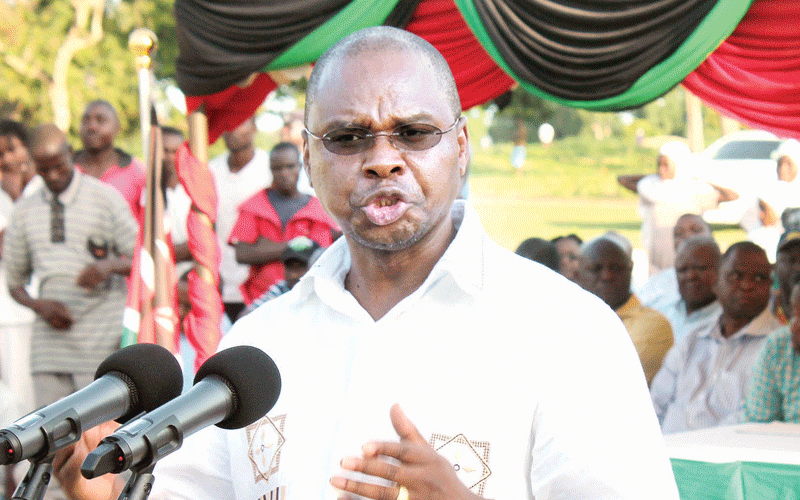Questionable expenditures cloud noble Covid-19 fight

Shortly after Kenya announced its first Covid-19 case, there was a dramatic shift in expenditures by various counties with some announcing multi-billion-shilling budgets to fight the pandemic.
Various county leaders have attempted to justify their spending in a number of ways, from launching glossy high-end facilities and to relief food distribution.
But these gestures of seemingly spirited fights against the pandemic have increasingly raised concerns that there could be a possibility of massive graft behind it all.
Among those on the spot is Mombasa Governor Hassan Joho who recently announced that Sh200 million would be set aside towards the Mombasa Food Subsidy Programme he said was intended to benefit at least 227,000 vulnerable households in the county.
He said the programme would require at least Sh700 million and appealed to other stakeholders, including corporate and individuals, to chip in and assist with cash and food donations.
It was, however, notable that the County Assembly passed the supplementary budget more than a week after the county had rolled out food distribution.
And Nyali MP Mohammed Ali, who is one of governor Joho’s fiercest critics, was the first to accuse both the National and County governments of misappropriating public funds in the guise of fighting the virus.
Mohammed said there is need for residents of Mombasa and Kenya as a whole to be furnished with details of how the Covid-19 funds have been utilised.
He said Kenya has received hundreds of billions of shillings from donors, foreign governments and international agencies such as the World Bank but has relatively little to show for them.
The legislator alleged massive corruption in the handling Covid-19 funds.
“Hassan Ali Joho you have done nothing for this county since you became the governor.
Today you are forging an illegal coalition with other leaders and sidelining leaders like us who can ask you questions about Covid-19 budget and food distribution and instead distributing the food donations on bias. In this we will not forgive you,” Mohammed said: “We are alert.
We are watching you. After this, you will have to explain to us where this money that has been donated has gone to.”
Some politicians, he said, are using the pandemic to seek funds from donors.
Contacted, Mombasa Finance Executive Mariam Mbaruk said as per the Public Finance Management Act (PFM), Covid-19 is not yet over and, therefore, it will be impractical to ask the county to account for the spending midstream.
“If you have further questions you can contact the communications director,” said Mbaruk.
Besides Mombasa, the neighbouring Kilifi county has also been put under microscope by Ethics and Anti-Corruption Commission over alleged irregular procurement of the tender for the construction of multi-million-shilling Kilifi Covid-19 medical complex which was recently unveiled by Governor Amason Kingi.
On May 4, EACC sleuths arrested four senior officials at the county for failure to provide documentation on the ambiguous tender deal. EACC also sought to know the source of funding for the project.
Kingi has since dismissed as baseless reports of misappropriation of funds for the newly open Covid-19 medical complex.
Kingi has so far refuted claims his administration bought intensive care unit (ICU) beds for the complex at Sh1.6 million each.
He said so far, no money has been paid for the procurement of beds for the medical complex whose first phase was converted into a Covid-19 treatment centre.
In his Labour Day address early this month President Uhuru Kenyatta dismissed as cheap politics claims that the funds are being misappropriated, saying there will be a public audit of the funds and every single cent will be accounted for.
Currently, top officials from six counties are being investigated by EACC over alleged misappropriation of the pandemic funds.
They are being probed over direct procurement, single sourcing of suppliers—mainly food and medical equipment—as well as hiking of prices, which have emerged as the most common avenues abused by corrupt county staff to skim off public resources.














